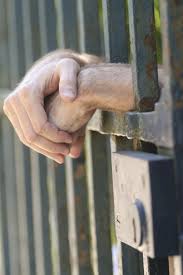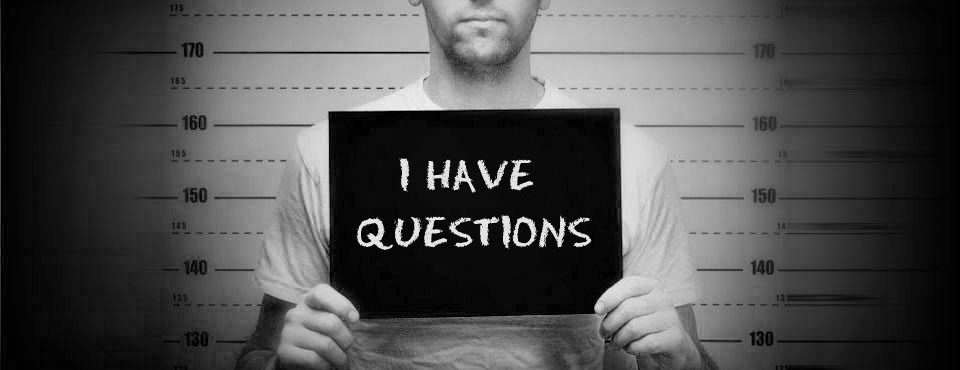

If a loved one or friend has been arrested, you’ll likely need to secure a bail bond to help get them out of jail. Unless you’ve dealt with the court system before, chances are you learned everything you know about bail bonds from watching TV. There’s quite a bit more to the process than a judge banging his gavel and yelling, “Bail is set at $10,000!”.
In the simplest terms, bail is an agreement between the court and the defendant. The defendant agrees to show up to all their scheduled court dates, and the court decides to return the defendant’s money once the trial is finished. If bail is set at $10,000, the defendant can pay that amount to the court in exchange for being released from prison. If the accused doesn’t hold up their end of the bargain and misses even one court date, they will immediately forfeit the $10,000, and a warrant will be issued for their arrest. However, if they do show up for all the hearings, they will get all their money back at the end of the trial, even if they’re convicted.
If the defendant cannot pay the amount needed to be released from jail, they will remain there until the case ends. Since it can take months for most trials to begin from the time of arrest, making bail is the number one priority for most defendants. The problem for many people is that they don’t have enough cash to get out. Because of this, most people use bail bonds to get released from prison.

Bail Bonds are similar to a loan in that you put down a small percentage of the total amount, and a lender, known as a bondsman or bail agent, puts down the remainder. So for the $10,000 bail, you, a loved one, or a friend might pay the bondsman $1,000, and they would then pay the entire $10,000 amount to the court. In addition to the $1,000, you would need to provide enough collateral to make up the $9,000 difference if you skip and don’t show up for a court date. Collateral is usually a deed to a house, car, or jewelry. Your $10,000 is returned to the bondsman when your case is over.
Because the bondsman accepts most of the financial risk, they take some precautions to ensure you make all your court dates. First, they prefer to have a friend or relative put up the collateral for the bond. You will be less likely to miss a court date if a relative’s house is on the line rather than just their property. Second, they will call you before each court date to remind you about the upcoming hearing. And third, they may require periodic check-ins at their office to ensure you haven’t left town. Most people agree that these precautions are a small price to be taken to be released from jail.
If you do skip a hearing or try to flee and the bondsman is not able to get in contact with you afterward, they will most likely hire a bounty hunter to track you down and return you to custody.

In Texas, the legal process for criminal cases involves various steps, one of the most critical being determining pretrial release conditions. Understanding the intricacies of bail bonds and pretrial release…

Navigating the criminal justice system can be daunting, particularly when it involves securing a loved one’s release from jail. Understanding the bail bond process is crucial, as it can significantly…

Bail bonds are a financial arrangement that allows an accused individual to be released from custody pending their court appearance. Typically facilitated by a bail bondsman, these bonds require the…

Warrants are legal documents issued by a judge or magistrate that authorize law enforcement to take certain actions, such as arresting an individual or searching a property. In Texas, as…

Surety bonds are an important aspect of the judicial system as a financial guarantee that an individual will meet certain obligations. In Texas, these bonds are particularly significant within the…

The professions of skip tracer and bounty hunter often evoke images of intense investigations and thrilling pursuits. While they share similarities in their investigative nature, they differ significantly in their…
 When is Bail Set?
When is Bail Set?When someone is arrested, they’re immediately booked into jail. That means that their name and personal information are entered into the police computer, their picture and fingerprints are taken, and their personal belongings are held in impound. They are then given a sobriety test, allowed to make one phone call, and locked in a cell. A hearing is scheduled, and a judge will determine how much bail should be. It is usually set within 48 hours of arrest.
Most jurisdictions have a bail schedule that is used to determine the amount. For example, in LA, the Superior Court of Los Angeles County would set it at $20,000 if you were accused of a felony with a maximum sentence of 3 years. The hearing judge has considerable leeway when setting bail, though, and can consider external circumstances. For example, if this was your first offense, you’re gainfully employed, and you have family in the area, the judge may choose to reduce the bail or discard it altogether. However, if you have multiple offenses on your record and the judge believes you may be a flight risk, they can increase bail or revoke it.
Some jurisdictions assign bail when a suspect is booked without waiting for a hearing. This usually only applies to low-level offenses. The police will inform you if you can post immediately, and you may even be able to pay for it with a credit card.

If the amount set is more than you or a family member can afford, securing a bail bond may be your best option. To find a company that will help get someone out of jail, you can search online, or the jail may have a listing you can use as a reference. While you’ll want to secure a bond as quickly as possible, asking a few questions is essential before deciding on a company to work with. Doing so could save you a considerable amount of money.
Agents make the most of their money by charging a bond premium. The premium is generally 10-20% of the bond amount and is non-refundable. Even if the accused shows up to all their hearings and are acquitted, you’ll never get that money back. Finding a bondsman with a low premium can save thousands of dollars. On top of the premium, there may be application or initiation fees which you’ll want to know about ahead of time.
While worrying about money may seem insensitive while a loved one or friend is behind bars, remember that court is not cheap, and you’ll most likely need to pay attorney fees and a host of other legal costs. Saving money now will allow you to spend more on the defense later.

There are some different bond types:
Hopefully, this guide has helped answer all your questions about why most people use bonds to get out of jail, but if you need more information, check out the FAQ page here.
A bail bondsman is essential for anyone who has been arrested. The bail bonds process starts as soon as a person ends up in jail. The first step in the process is setting the bail amount. Most people are initially given a bail amount after they are arrested. The amount varies with the crime, the particular situation of the defendant, and the arrest.

Bail bonds are a type of surety bond provided by a bail bond agent or bondsman. When arrested, they may be allowed to post bail to secure their release from jail while awaiting trial. The court sets the bail amount, and the defendant can pay the full amount in cash or use a bail bond. A bail bond involves the defendant paying a non-refundable fee (usually 10-15% of the total bail amount) to a bail bond agent, who then provides a bond to the court, guaranteeing the full bail amount if the defendant fails to appear in court.
A bail bondsman, also known as a bail bond agent, is a professional who provides bail bonds for individuals accused of crimes. They charge a fee, usually a percentage of the total bail amount, to post a bond with the court on behalf of the defendant. The bondsman guarantees the court that the defendant will appear at all required court dates. If the defendant fails, the bondsman is responsible for paying the full bail amount.
The cheapest bail typically refers to the lowest possible bail amount set by a court, which can vary widely depending on the nature of the offense and jurisdiction. Bail can sometimes be set at a relatively low amount, such as $100 or less for minor offenses. However, using a bail bond, the defendant would pay a fee to the bondsman, usually 10% of the bail amount.
The term “bail” originates from the Old French word “baillier,” meaning “to deliver” or “to hand over.” In the context of the legal system, bail refers to the temporary release of an accused person awaiting trial under the condition that a sum of money or bond is lodged to guarantee their appearance in court.
Bail money is the amount a court requires to secure the temporary release of an accused individual from custody. This amount guarantees that the defendant will appear at all scheduled court proceedings. The bail money is usually refunded minus administrative fees if the defendant meets all court conditions. However, if a bail bond is used, the fee paid to the bondsman is not refundable.
10% of a $5000 bond is $500. This is typically the fee paid to a bail bondsman to secure a bail bond to release a defendant from jail.
A $5000 bond requires the defendant to pay the full amount in cash or secure a bail bond from a bail bondsman. If the defendant opts for a bail bond, they will pay a fee, usually 10%, to the bondsman, who then posts the bond with the court. The bondsman guarantees the defendant’s appearance at all court hearings. If the defendant fulfills this obligation, the bond is exonerated. If not, the bondsman may be required to pay the full $5000 and may seek to recover this amount from the defendant.
A bond is a financial arrangement used to secure the release of a defendant from jail. When a court sets bail, the defendant can either pay the full amount or use a bail bond agent. The agent charges a non-refundable fee, typically a percentage of the bail amount, and provides a bond to the court. This bond acts as a guarantee that the defendant will appear in court. If the defendant appears as required, the bond is exonerated; otherwise, the bond may be forfeited, and the agent may seek reimbursement from the defendant or their guarantors.
Yes, suppose the full bail amount is paid directly to the court, and the defendant complies with all court conditions. In that case, the bail money is typically refunded after the case is concluded, minus any applicable fees. However, if a bail bond is used, the fee paid to the bail bondsman is non-refundable, as it serves as payment for the agent’s services.
As of recent legal reforms, some states and jurisdictions in the United States have moved towards eliminating cash bail or significantly restricting its use. For instance, Illinois has abolished cash bail with the SAFE-T Act, and other states like New Jersey and New York have implemented reforms to reduce the reliance on cash bail. The specifics can vary, and the landscape evolves as states consider alternatives to cash bail systems.
A “bail-in” is a financial mechanism typically used in banking, distinct from the legal bail process. It involves the internal restructuring a financial institution’s debt to stabilize the bank during a financial crisis. Instead of relying on external help, like government bailouts, a bail-in allows the bank to convert its liabilities (such as customer deposits) into equity to recapitalize the bank and absorb losses. This process aims to prevent the bank’s failure and protect the financial system’s stability.
A combined bond is a combination of surety and cash bond.
Unrestricted bond is another phrase for an unsecured bail bond.
If you hear there is a warrant out for your arrest, you should do a warrant check to validate the reality of the matter. To begin, you can look for arrest warrants online. Some third-party websites provide nationwide background checks and arrest warrant reports. You can learn about many components of your arrest warrant by conducting an online search for warrants. See also: How to Check for Warrants in Texas
Bail bond agents accept several sorts of collateral. Property deeds, vehicles, jewels, bank accounts, other kinds of real estate, and sometimes even credit cards are some of the more typical bail bond collateral assets. If you have stocks, bail bondsmen could also be willing to accept them.

Clive is a bail expert from the Tucson area who started this site to correct a number of myths about the industry. He’s also a family man with a wife and three kids. When he’s not working he spends his time on the golf course or at the Rotary club.